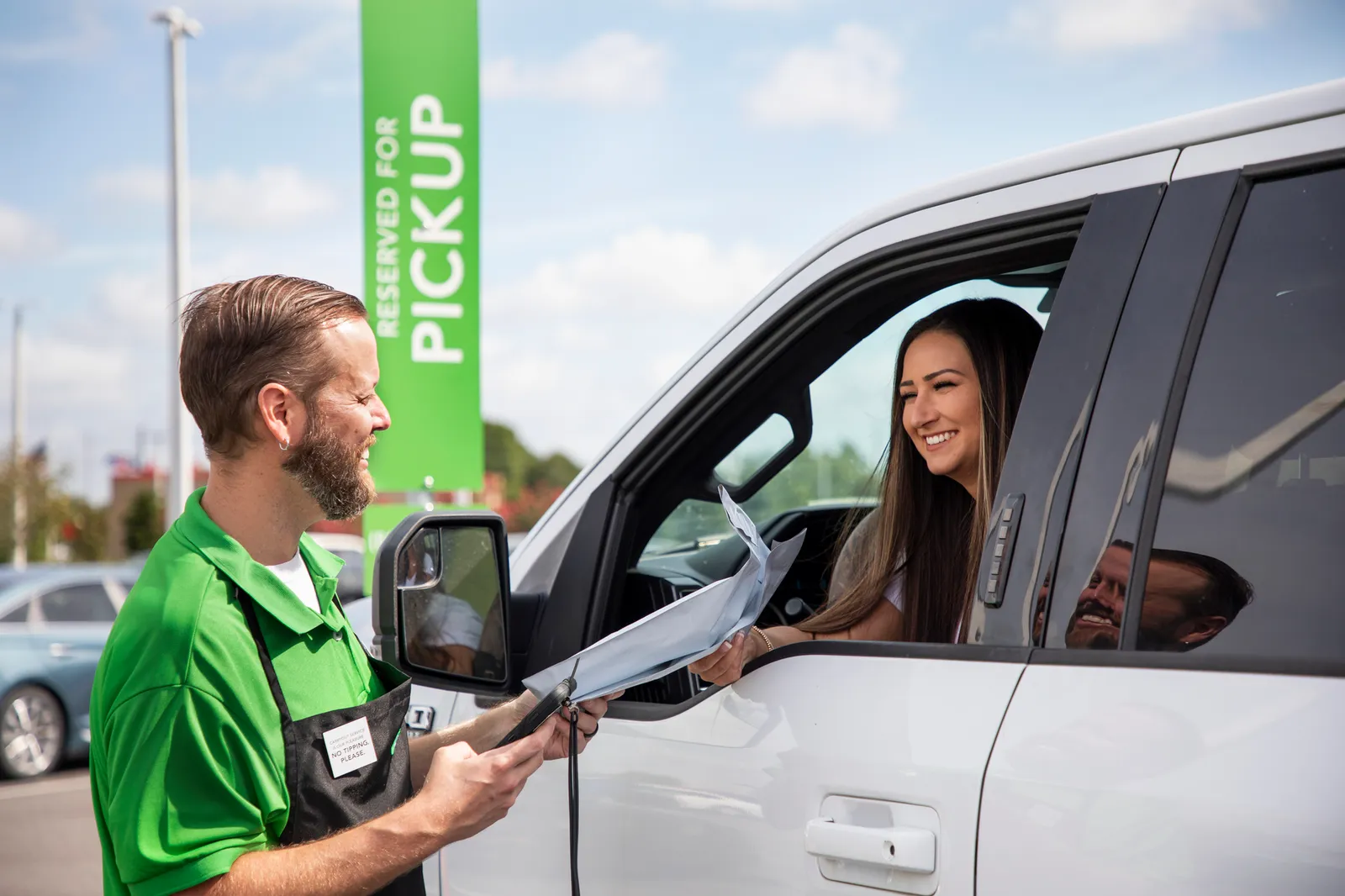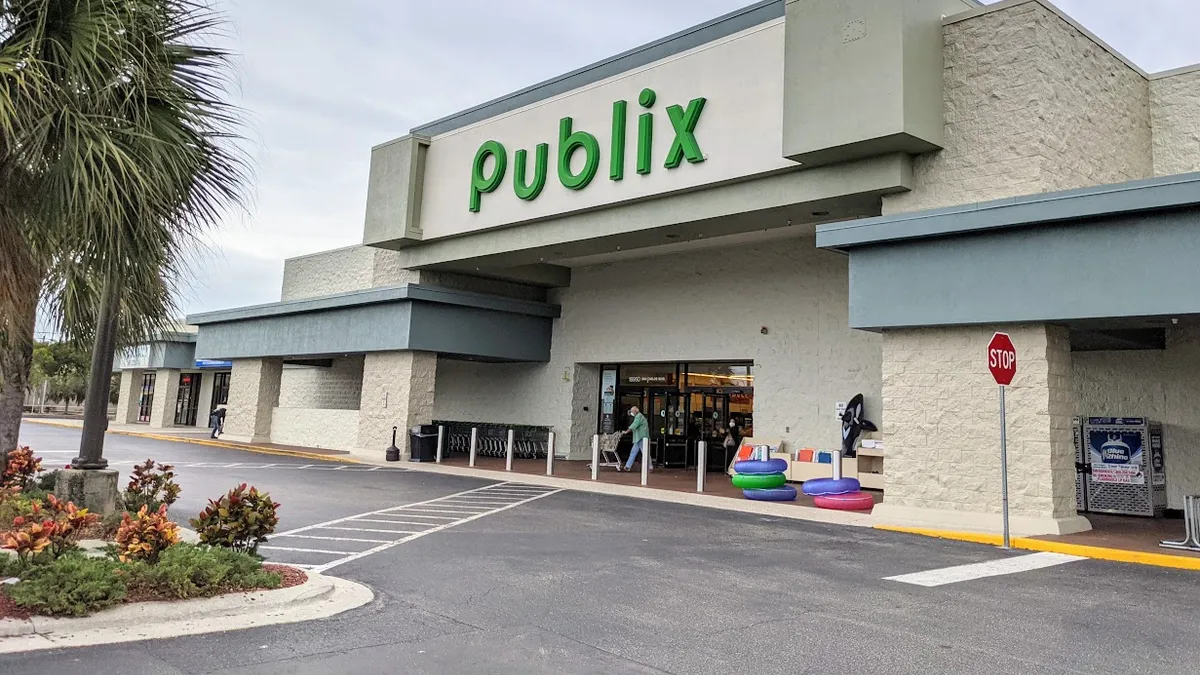When Publix first put down roots in Lakeland, Florida, as a fledgling retailer nearly 80 years ago, the company made the city home to what would eventually become one of the nation’s largest operators of grocery stores.
Now, the regional supermarket chain is plowing tens of millions of dollars into a technology-focused real estate project in Lakeland’s downtown zone that could boost the central Florida community’s profile as an employment center — and position Publix as an attractive destination for people looking to determine the future course of the retail sector in the United States.
Publix is currently working on a more than $50 million effort to convert a 140,000-square-foot former FedEx building the company recently purchased into a hub intended to house hundreds of information technology workers, according to Steve Scruggs, president of the Lakeland Economic Development Council (LEDC), a nonprofit organization that works in concert with Lakeland’s city government to attract and retain employers.
Publix acquired the structure in January for $8.6 million, local news site Lkldnow reported in August.
After renovating the site, Publix plans to renovate a nearby 120,000-square-foot facility formerly occupied by the J.C. Penney department store chain where the grocer already houses technology teams, Scruggs, who helped spearhead Publix’s investments in the city’s central corridor, said in an interview.
The two buildings will be directly linked by a parking garage, and Publix intends to create additional parking for workers on the site of a building the grocer bought in 2016 that used to belong to former Florida Citrus Mutual, Scruggs added. In addition, Publix, which is one of about 135 companies that belong to and fund the LEDC, leases space in two other buildings in Lakeland, he said.
Instead of the growing complex “just being IT, now we’re calling it the Publix technology campus,” said Scruggs.
In updating and expanding its technology facilities in Lakeland, Publix will create hundreds of new jobs paying an average salary of $130,000, Scruggs told city officials during a meeting on Aug. 4. That figure is more than twice the annual average wage in Polk County, Florida, where Lakeland is located, Scruggs said, adding that the city has never before added such a large number of jobs at such a high rate of pay.
Publix currently employs about 1,200 people in downtown Lakeland, according to Scruggs.
A spokesperson for Publix did not respond to an email requesting comment about the project.
Jordan Berke, a former Walmart leader who is founder and CEO of Tomorrow Retail Consulting, said Publix’s growing campus reflects the “technology moment” happening across retail. Companies are now investing in automation, artificial intelligence, retail media and more — and they’re increasingly bringing those capabilities in-house.
Publix offers delivery and pickup service across its operating footprint, and has worked closely with Instacart to implement these services. Last spring, Publix launched 15-minute delivery in partnership with the e-commerce firm.
“There’s all kinds of new needs for technology inside a retail organization. That gives technologists a very exciting chance to grow and develop,” Berke said.
Gautham Vadakkepatt, an associate professor at the University of Central Florida College of Business Administration who studies the retail sector, said Publix’s tech campus is a highly visible way for the company to telegraph to potential employees that it sees investing technology as central to its future.
“It’s a signal to the market as to how important technology is to them,” he said.
Vadakkepatt added that the widespread job cuts that have rattled the tech sector throughout 2023 could play into the hands of retailers like Publix, especially because a career at a retailer might not be top of mind for people looking for a job in technology.
An optimal time for grocers to position themselves as tech innovators
Berke said that his firm sometimes helps interview candidates for product and engineering roles on behalf of retailers and is finding that “high-pedigree technologists” are drawn to the retail industry.
“We’ve certainly turned a corner as an industry to now be an exciting destination rather than the kind of traditional ‘keep the lights’ on industry that I think technology [workers] used to see retail as,” Berke said.
One reason for the shift, he said, is that retailers collect large quantities of information in the course of their business, which can make them attractive to people interested in using artificial intelligence and other technologies to work on consumer-oriented projects.
Retail “has one of the largest datasets of any industry,” said Berke. “And so it is an exciting industry for a lot of technologists.”
Berke noted that a number of retailers in addition to Publix have recently taken steps to expand their presence in the technology arena. They include H-E-B, which has technology centers in San Antonio and Austin, Texas, and Kroger, which runs a data science unit known as 84.51°. Walmart, meanwhile, operates technology hubs in 17 cities, including Atlanta, Toronto and Seattle.

A challenge for Publix as it presses ahead with its technology-related investments is that the company is not building its tech base in an area well known for IT careers, said Neil Saunders, managing director of GlobalData Retail. Publix is “perhaps not seen as being as large a company as it actually is, because it is still a regional name even though it is a very, very large company with very high revenues.”
Publix, which runs over 1,300 supermarkets in seven Southeastern states, recorded $54.5 billion in sales in 2022 and has over 250,000 employees.
Anne Mezzenga, co-CEO of retail podcast Omni Talk, said Publix enjoys unique advantages because of its close association with communities where it operates that play to its favor as it builds its technology operations.
“There definitely is a sense of ownership over what’s happening … in a way that you just you don’t see in the same way at a Target or a Walmart or a Kroger. There is some personal investment in working in [Publix’s] stores, and I think that can trickle down to the rest of the organization,” Mezzenga said.
Mezzenga added that Publix has a strong incentive to double down on capabilities that can help it remain competitive as rivals like Aldi and Kroger take steps to grow their presence in Florida, where more than half of Publix’s stores are located.
“People are starting to encroach on their territory. And one of the ways that I think we’re going to see grocers be successful is investing heavily in tech,” Mezzenga said.













